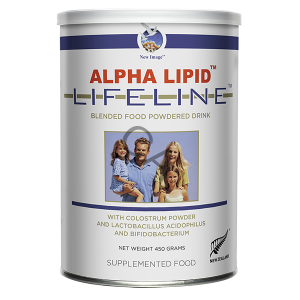
Alpha Lipid™
Lifeline Colostrum 450g
$87.00

NEW IMAGE™
PROTECTS, REVITALISES AND REJUVENATES

Alpha Lipid™
Lifeline Colostrum Drink
12 can buy
$960.00

FibreMax
Detoxing Superhero
420g
$71.00

Alpha Lipid™
Lifeline Colostrum Drink
24 can buy
$1,896.00





New Image Alpha Lipid Gut Health Selection
STRESS - SLEEP - AND THE GUT
- THE COMMON CAUSES
The Leaky Gut
Your intestinal lining is designed to be selectively permeable, it allows nutrients to pass through while keeping toxins, undigested food particles, and harmful bacteria out of your bloodstream. This barrier consists of tightly connected cells held together by proteins called tight junctions.
When this barrier becomes compromised, it's often referred to as leaky gut syndrome or increased intestinal permeability. While the medical establishment has been slow to recognise this condition, research increasingly shows that intestinal permeability plays a role in various health problems, from food allergies to autoimmune diseases.
Stress, Sleep and the Gut
The connection between stress and gut health runs deeper than most people realize. When you're stressed, your body releases cortisol and other stress hormones that can directly affect your gut bacteria.
Chronic stress can reduce the diversity of your microbiome and promote the growth of harmful bacteria.
Stress also affects gut motility, the coordinated contractions that move food through your digestive system. When you're stressed, digestion slows down, which can lead to constipation, bloating, and other digestive issues.


Building the Gut Health Protocol
Creating an effective gut health protocol needs a systematic approach that addresses diet, lifestyle, and targeted supplementation. The goal is to create an environment where beneficial bacteria can thrive while minimizing factors that promote harmful bacteria.
Start by assessing your current gut health status. Pay attention to digestive symptoms like bloating, gas, irregular bowel movements, or food sensitivities.
Keep a food and symptom diary for a week to identify patterns and potential triggers.
Note your energy levels, mood, and overall sense of well-being.
